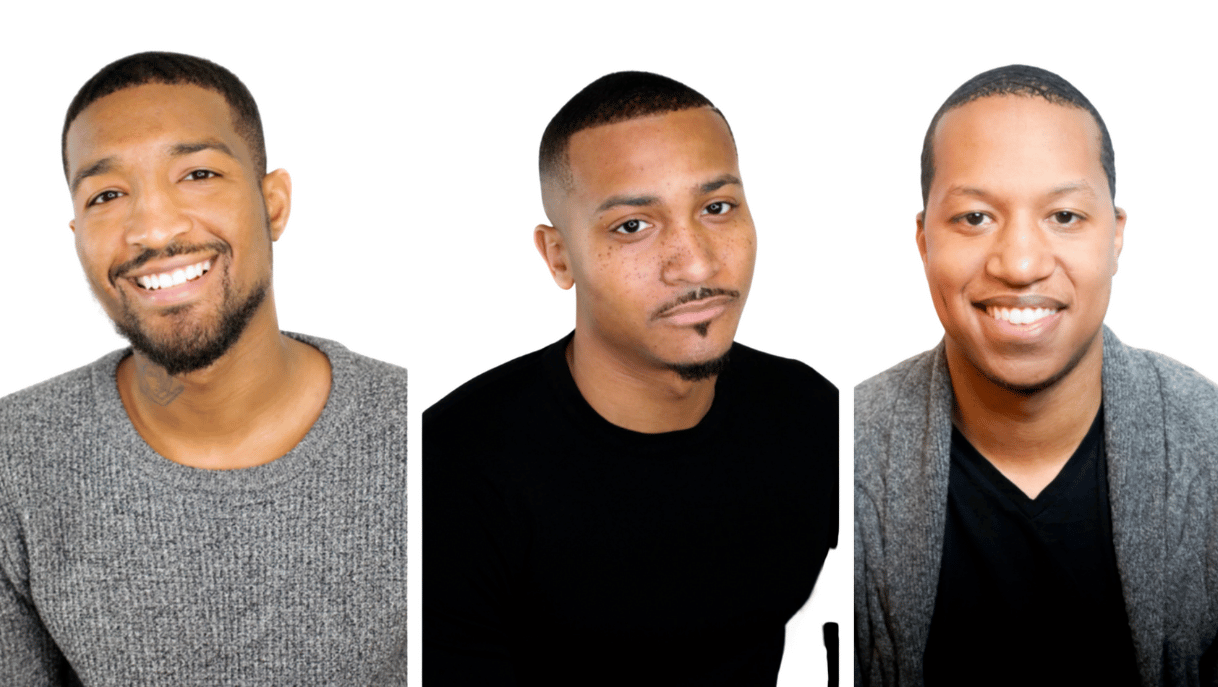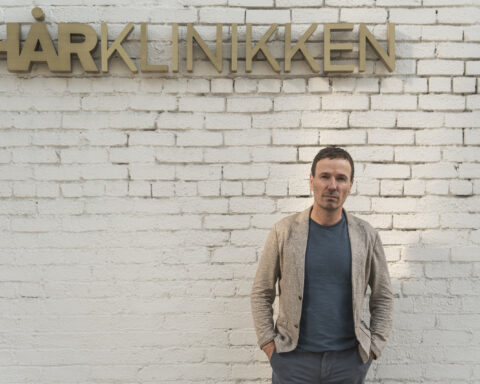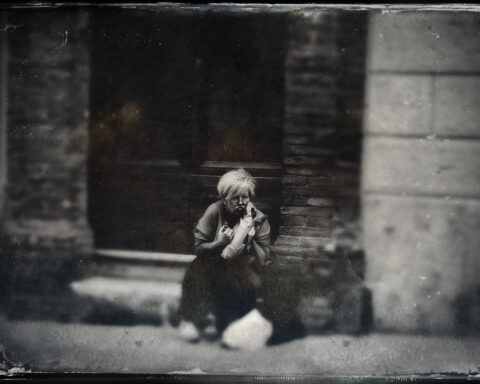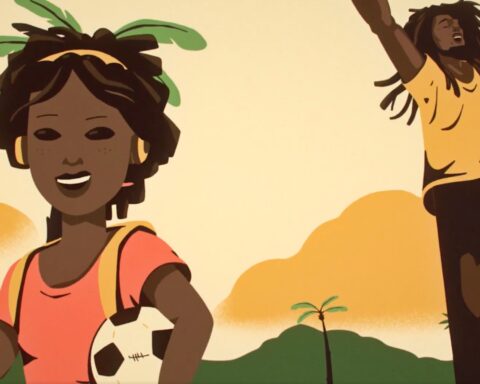Aaron Warwick, Greg Wilson and Dante Wade graduated college full of enthusiasm to make a positive impact on society.
But they quickly found the world was not as friendly and they’d hoped.
While studying at Lincoln University, Pennsylvania, the three men had formed their own informal brotherhood to support one another through the challenges of those crucial years.
But they found they continued to rely on one another for inspiration and guidance after they graduated — and realized many of their peers were searching for that same support they’d provided to each another.
They are now putting their skills, experiences and passion into their new app Elevate, which is packed with practical mental health resources to help others navigate the challenges that have been brought into sharp focus by the health pandemic and racial injustice.
According to a study by the Health and Human Services Office of Minority Health, black adults in the US are more likely than white adults to report persistent symptoms of emotional distress — but are less likely to receive the consistent mental health care they need.
And another study utilizing data from the National Survey of American Life found black men with mood, anxiety or substance use disorders are more likely to rely on informal support alone.
At Elevate, the co-founders hope to combine constructive mental wellness challenges that hold users accountable with a community of like-minded individuals to help raise each other up.
Here co-founder Aaron, 28, explains their mission.
Tell us about your thinking behind the app and how it was born?
Elevate serves as a personal guide to mental, physical and emotional success. We aim to encourage wellness and inspire our users to live fully by providing great mental wellness and self-care resources and practices. Myself, Dante Wade and Greg Wilson are the co-founders all went to Lincoln University, PA. During our time we built a friendship and a brotherhood and after we graduated college and stepped into the real world we were excited to get out there and make an impact — but things were not as easy as we thought. You’re in new work environments, you’re meeting new people and trying to build new relationships. And during that time we noticed the real world wasn’t as friendly as we’d like it to be. There was a lot of stresses and traumas and obstacles that stood in our way that impacted our mental capabilities and our mental health. And during that time we would talk and vent to one another and provide each other inspiration, and that helped us. Greg and myself were roommates and always had an entrepreneurial spirit in college, and I was a computer science major so tech was already my realm. And Dante specialized in public speaking, he would post a inspirational video on Instagram every Monday for two or three years and had gained a large following doing that, so we pitched him the idea and this was right in his alley. We thought if this brotherhood worked for us — being a service and a resource for each other — then lets build a platform where we can make it work for other people too.
At Mr Feelgood we are writing mental wellness content focussing on men as we feel like the female side of this discussion is perhaps already a little more evolved. As a company founded by three guys, what can you say about the specific challenges faced by men?
We recently did a survey that spoke profoundly that women were taking mental wellness more seriously than men. And men typically have this chip on our shoulder that we have to toughen up or soldier on — that we don’t want to be vulnerable and express our feelings. But we have to try and defeat these stigmas. Mental health issues do not discriminate with regards to creed, gender or financial status. It affects everyone. So we have to break down these barriers and encourage a safe environment for men like ourselves to communicate with each other and have a healthy discussion around mental health and provide the correct resources and support and normalize the conversation. So that was big challenge to get men involved in the movement of mental wellness, but I think that with this new digital age it’s starting to become a little bit easier.
What specific things have you done to make sure the resources you offer appeal to men?
Before we launched the app we performed a lot of research on what men are going through, looking at different types of men from different backgrounds. We thought about what resources they would need and how we could address that in the app. Specifically we want to provide timely content that is resourceful, useful and relatable. And to make sure the people who are delivering the content can resonate and relate and have been through these challenges themselves. We have guided meditations, inspiration, progress tracking and self-improvement challenges that hold you accountable, like exercising or following up with your therapist. And we have a community of like-minded individuals that engage around topics of interest.

The Elevate App
Did you conduct research on black men and women in particular, and the specific challenges faced, and what have you done to make sure you’re talking to this community?
We try to make the app inclusive to everyone, but with us founders being three black men there is an aspect of the app that resonates with African-American males. Just representation itself in our founding team and people getting involved in the movement is something that people love to see and want to be a part of. There are so many different things going on in the world. We have a lot of people dealing with the effect of Covid-19 and how it disproportionally effects African-Americans compared to other races. And there is a lot of concern with police brutality and injustices within the criminal justice system and these have underlying post traumatic stress impacts on individuals. So we are constantly looking at these things and trying to provide the right resources — whether it’s therapy for African-American males or just inspirational content to lift their mood. And as co-founders we are also involved in supporting the community in other ways.
You talk about men not always seeking help for mental health challenges, do you think that is more of an issue in the black community?
That’s a great question and we have to look at the different underlying factors. Sometimes people don’t have the financial resources to get adequate therapy and there is a big difference in the wealth gap between minorities and white people, so that’s something we need to look at. Also there is a cultural aspect. I do know African-American males who don’t feel like they can open up or have someone to talk to. And this may not be because they don’t want to feel vulnerable but may be they feel like they don’t have anyone to relate to. However there is also a large community of African-American males who have taken on that mantle of opening up and expressing themselves and serve as an example for others. And men with children tell me they have to be an example to their kids, and they can’t have their kids see them distraught or going through something. So there is so much pressure on men in general. And I think that affects everyone.
Find out more at getelevateapp.com











